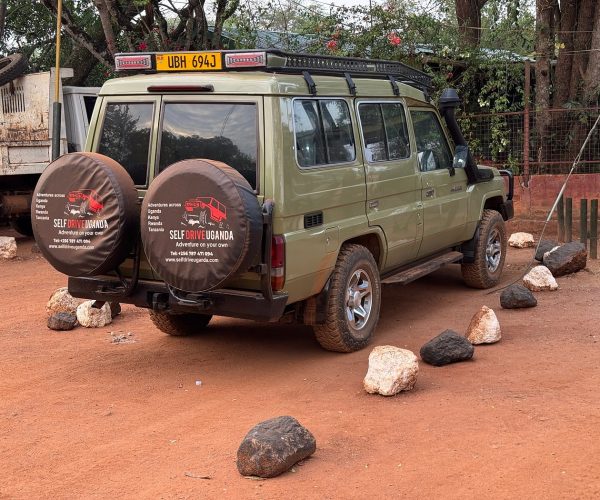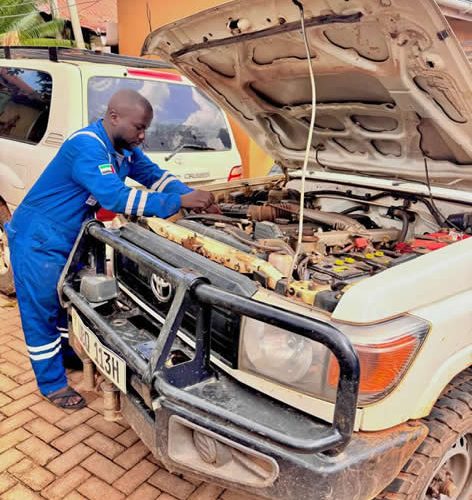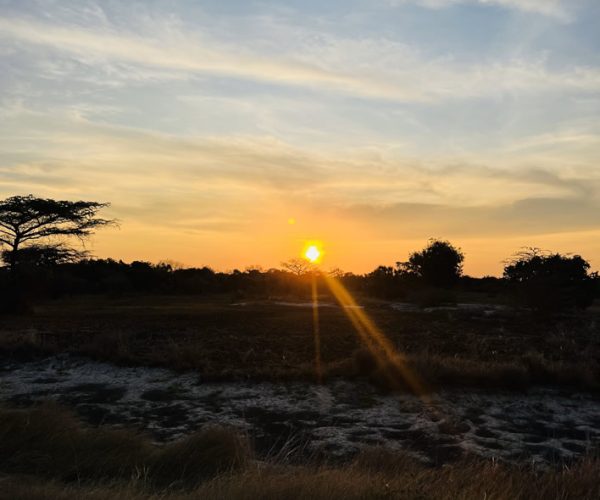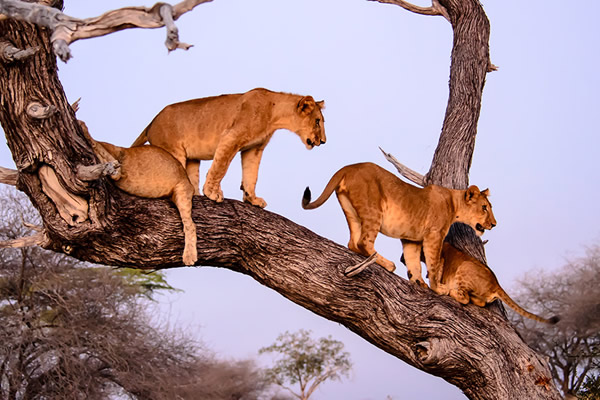Preparing for Solo Self Drive Trip
Before traveling alone in Kenya, it’s important to prepare well. Good planning makes your trip smooth, safe, and enjoyable.
- Research your destinations: Learn about the places you want to visit — weather, culture, attractions, and safety tips.
- Book in advance: Reserve your accommodation, safari tours, or transport before arrival. It helps you stay organized and reduces stress.
- Check travel documents: Make sure your passport, visa, and travel insurance are valid. Always keep copies in case you lose the originals.
- Plan your route: Decide how you will move between destinations. Kenya has buses, flights, and car rentals. For flexibility, many solo travellers prefer renting a car.
- Health precautions: Visit a doctor for vaccinations and carry basic medicine for headaches, stomach issues, or insect bites.
- Stay connected: Have a local SIM card or mobile internet for maps and communication.
- Budget wisely: Keep extra cash for emergencies and avoid carrying large amounts.
- Prepare Documents and Money – Carry a valid passport, visas if needed, travel insurance, and some local currency for small expenses.
Safety Tips for Solo Travelers – Is it Safe for Solo Travelers?
Kenya is generally safe for solo travelers, especially in tourist areas, but you must stay alert and careful.
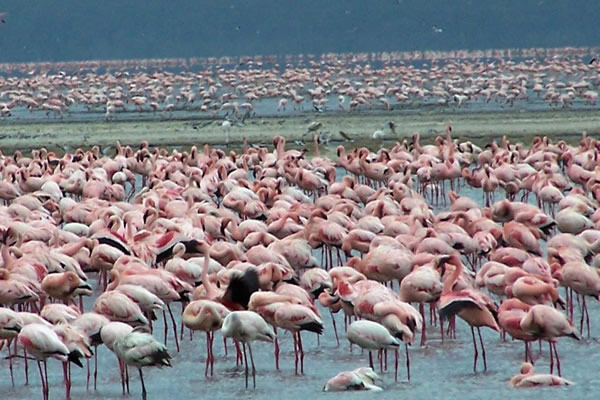 Stay in safe areas: Choose hotels, lodges, or camps in trusted neighborhoods or near national parks.
Stay in safe areas: Choose hotels, lodges, or camps in trusted neighborhoods or near national parks.- Avoid walking alone at night: Use taxis or trusted transport, especially in cities like Nairobi or Mombasa.
- Keep your belongings safe: Use a money belt or lockable bag for your passport, cash, and phone.
- Be aware of scams: Be polite but careful with strangers offering deals that sound too good to be true.
- Stay connected: Share your travel plans with family or friends and check in regularly.
- Use licensed guides and drivers: For safaris or tours, choose registered operators for safety and reliability.
- Respect local culture: Dress modestly and follow local customs to avoid unwanted attention.
What to Pack as a Solo Traveler
Packing smart helps you travel comfortably and safely in Kenya.
Essentials to pack:
- Clothing: Light, breathable clothes for daytime and a warm jacket for cool nights. Neutral colours are better for safaris.
- Footwear: Comfortable walking shoes or hiking boots for safaris and sandals for beach areas.
- Travel documents: Passport, visa, travel insurance, and copies kept in a separate bag.
- Electronics: Phone, charger, power bank, and a universal adapter. A camera is great for capturing memories.
- Health items: Sunscreen, insect repellent, basic medicine, hand sanitizer, and personal hygiene items.
- Money and cards: Carry some cash (in Kenyan shillings) and a card for emergencies.
- Daypack: A small backpack for water, snacks, and valuables during day trips.
- Reusable water bottle: Stay hydrated, especially in hot weather.
- Travel guide or offline maps: Useful for solo navigation when there’s no internet.
Packing well makes your solo travel easier and helps you focus on enjoying Kenya’s beauty without stress.
Accommodation for Solo Travelers
 Kenya offers many great places to stay for solo travelers from budget hostels to luxury lodges. The key is to choose safe, comfortable, and social spots.
Kenya offers many great places to stay for solo travelers from budget hostels to luxury lodges. The key is to choose safe, comfortable, and social spots.
- Hostels: Best for solo traveler who want to meet others. They are affordable and found in cities like Nairobi and Mombasa.
- Guesthouses: Small, family-run places offering warm hospitality and local meals. Ideal for cultural experiences.
- Safari lodges and camps: Found inside or near national parks like Masai Mara or Amboseli. Perfect for nature lovers and wildlife photographers.
- Beach cottages: Great for relaxing alone on the coast, especially in Diani or Watamu.
- Hotels: Ranging from budget to luxury, hotels are safe and provide good facilities.
Budget and Money Tips – How Much Does It Cost to Travel Solo in Kenya?
- Transport – Renting a 4×4 Land Cruiser with camping gear costs about $170 per day. When traveling long distances, you also need fuel, which averages $110 and above per full tank depending on the tank of the car.
- Accommodation: Budget hostels or guesthouses cost about $25–$50 per night, mid-range lodges cost $100–$200, and luxury safari lodges can reach $250 or more. Staying in campsites is the cheapest option, around $10–$20 per night.
- Food: Local meals in small restaurants cost around $10–$15, while meals in mid-range hotels cost $20–$25. Eating local dishes like ugali, sukuma wiki, and chapati helps save money.
- Activities: National Park entry fees are usually $60–$200 per day, depending on the park. Low-cost activities include city walks, beach visits, and cultural tours.
- Tips for Saving Money – Book accommodation and tours in advance, travel during off-peak seasons, eat at local restaurants, and plan fuel stops to avoid overpaying.
Cultural Tips Should Solo Travelers Know in Kenya
Understanding Kenya’s culture helps you connect better with people and travel respectfully. Kenyans are warm, polite, and welcoming, but showing good manners is important.
- Greetings matter: Always greet people before asking for help or directions. Say “Jambo” (hello) or “Habari” (how are you?). Smiling shows respect.
- Dress modestly: In cities and villages, avoid short clothes. On the beach, swimwear is fine, but cover up when walking around towns.
- Respect traditions: Some communities have strong cultural beliefs. Ask before taking photos of people or ceremonies.
- Be polite: Say “Asante” (thank you) and “Karibu” (you’re welcome). Politeness makes interactions easier.
- Avoid showing anger: Kenyans value calm and respect. If something goes wrong, stay patient and speak kindly.
- Bargaining: It’s common in local markets, but do it politely. Smiling helps you get better deals.
- Tipping and gratitude: Small tips for good service are appreciated but not forced.
- Punctuality: In Kenya, time can be relaxed things may not always start exactly on time. Be flexible.
- Community respect: In rural areas, greet elders first and use your right hand when giving or receiving items.
Learning simple Swahili words and showing respect for culture helps you build friendships and enjoy local experiences. Kenyan people love visitors who appreciate their traditions and kindness.
Food, Water, and Local Etiquette
Kenya’s food is delicious, fresh, and full of variety. Eating local dishes helps you understand the country’s culture better.
- Local Food: Kenya has delicious dishes like ugali (maize meal), nyama choma (grilled meat), sukuma wiki (greens), chapati, and samosas. Trying local food helps you experience Kenyan culture.
- Eating Places: Eat where many locals go it means the food is safe and tasty. Avoid food from dirty or empty stalls.
- Water Safety: Always drink bottled or filtered water. Avoid tap water, ice cubes, and raw salads to prevent stomach problems.
- Using Hands: Kenyans often eat with their right hand. The left hand is seen as impolite for eating or giving food.
- Greetings: Always greet before eating or asking for service. A simple “Jambo” (hello) or “Habari” (how are you?) is appreciated.
- Politeness: Say “Asante” (thank you) after a meal.
- Sharing Meals: If someone invites you to share food, it’s a friendly gesture accept with gratitude.
 Communication and Connectivity
Communication and Connectivity
- Mobile Network: Kenya has good phone coverage in most towns and tourist areas. You can make calls easily and use the internet almost everywhere.
- Local SIM Card: Buy a SIM card from Safaricom or Airtel at the airport or in town. It’s cheap and gives access to data, calls, and texts.
- Internet Access: Most hotels, cafés, and lodges offer free Wi-Fi, though it may be slow in remote areas like national parks.
- Offline Maps: Download Google Maps or me before your trip to help you find routes when there’s no signal.
- Language: English and Swahili are spoken widely. Learning simple Swahili words like “Jambo” (hello) and “Asante” (thank you) helps communication.
- Safety Online: Avoid sharing your exact travel location on social media.
- Emergency Contacts: Save your hotel, embassy, and car rental phone numbers for quick help if needed.
Responsible and Sustainable Travel
Traveling responsibly in Kenya helps protect nature, animals, and local communities. Solo travellers can make a big difference by being mindful.
- Respect wildlife: Keep a safe distance, never feed animals, and follow park rules. Take photos without disturbing them.
- Support local businesses: Buy handmade crafts, eat local food, and stay in locally owned lodges. This helps the community earn directly from tourism.
- Reduce plastic use: Carry a reusable water bottle and shopping bag. Plastic bags are banned in Kenya.
- Save energy and water: Turn off lights, air conditioning, and taps when not in use.
- Respect culture: Dress modestly, ask before taking photos, and respect local traditions.
- Avoid animal exploitation: Don’t ride wild animals or visit places that mistreat them.
- Leave no trace: Take your trash with you and keep nature clean.




 Stay in safe areas: Choose hotels, lodges, or camps in trusted neighborhoods or near national parks.
Stay in safe areas: Choose hotels, lodges, or camps in trusted neighborhoods or near national parks. Kenya offers many great places to stay for solo travelers from budget hostels to luxury lodges. The key is to choose safe, comfortable, and social spots.
Kenya offers many great places to stay for solo travelers from budget hostels to luxury lodges. The key is to choose safe, comfortable, and social spots. Communication and Connectivity
Communication and Connectivity